Our judicial system is broken, and does not represent all, equally. That is apparent to me as we have seen the events, not only of late, but for many years.
There are a few questions that I have been asking myself. The questions need to be addressed by all: our elected leaders, our religious leaders, our community leaders and people of all races, nationalities, faiths and backgrounds.
Is the NYPD and other police forces racist? No.
Are there individuals in all police forces who are racist: overtly or subliminally? Yes.
Are Blacks and Latinos held to a much different standard as they go about their daily activities than are Whites? Yes.
Do Black and Latino young people have reason to be ditrustful of the police? Yes.
Are local judicial systems independent of those responsible for enforcing the law (the police)? They’re supposed to be.
Are special prosecutors needed in all cases where a police officer is accused of a crime against a civilian? Yes.
In thinking about these questions, it is my hope that each of you can step out of your identity: your race, your national background, your religion, your ideology, your gender, your sexual orientation. Try to think of yourself in someone else’s shoes: race, nationality, religion, gender.
We do this through conversation and recognition. Over the last few weeks I have conversed much more with my black friends about their experiences and how they feel about themselves and their children in the eyes of the justice system.
I look at the officers in our NYPD as committed to enforcing the laws of this city. I feel that most enter the force because they desire to improve the quality of life of all New Yorkers. Yet, I feel that all too many look at Blacks and Latinos in a different way from other races. If a White youth was to be wearing a hoodie, dressed down wearing saggy pants down to his waste the police officer would not give him a second thought. If he was Black or Latino, the reaction may be much different, and we know it. A White Trayvon Martin would probably be alive today. I feel that this is, at the very least, subliminal racism.
There are also some police officers who are overtly racist. The Blue Line of Brotherhood does not allow them to be exposed despite the many racist things they say or how racist their behaviors are on the job. That needs to be addressed, not only by the NYPD, but by all police forces, and monitored on a Federal level.
I have spoken to young men about how they feel when in the street and they see a police officer. One young man in my building, who was a Boy Scout, is middle class, bright, articulate and always polite stated that he did fear seeing a police officer. I am sure his mom did speak to him as Mayor de Blasio spoke to Dante.
Our Mayor said, “Chirlane and I have had to talk to Dante for years, about the dangers he may face. A good young man, a law-abiding young man, who would never think to do anything wrong, and yet, because of a history that still hangs over us, the dangers he may face – we’ve had to literally train him, as families have all over this city for decades, in how to take special care in any encounter he has with the police officers who are there to protect him.”
And that painful sense of contradiction that our young people see first, that our police are here to protect us, and we honor that, and at the same time, there’s a history we have to overcome, because for so many of our young people, there’s a fear. And for so many of our families, there’s a fear.
So I’ve had to worry over the years. Chirlane’s had to worry. Is Dante safe each night? There are so many families in this city who feel that each and every night. Is my child safe? And not just from some of the painful realities—crime and violence in some of our neighborhoods—but is safe from the very people they want to have faith in as their protectors.”
The fear is real. It is not made up. A parent of a Black child is forced by society to explain to their child that they will be viewed differently from their White contemporaries. This needs to be fixed. We do not see White youth being fearful of the police. The police have to earn the respect they deserve by seeing every person not by race but as a young human being.
The column by Dana Canedy in Sunday’s NY Times made me tear up as I read about her son Jordan and how he feels about being a light skinned black youth with a desire to meld into a white world. The fact that Jordan asked: “Can I pretend I’m white?” is scary, to say the least. No person should be thrust into a position where they feel they have to hide their identity; to stay in the closet. We not only see this with race but with national backgrounds, sexual identification and more.
Most of you read what I wrote about Salvatore Lombino, a family friend, who had to change his name in order to be accepted as a writer. We know of many gay and lesbian and transgender people who cannot live who they are. That is wrong. Dana Canedy knew that some day she would need to discuss how to act when stopped or seen by a police officer: address as “sir” or “ma’am”, do not make any sudden moves, even to reach for identification, do not raise your voice or resist being searched. Unspoken rights accorded to whites are too often not accorded to Blacks. All people are supposed to be entitled to certain rights including the right to consent to searches and other police tactics. Unfortunately, those rights are not told to many. In fact many black parents specifically tell their children not to demand their rights because of how the police might react.
Dana Canedy’s husband, Jordan’s dad, a decorated US Army soldier, was killed in Iraq when Jordan was only six months old. Ms. Canedy has to deal with this. She knew that some day her son would no longer be seen as cute or sweet but as “a suspect”. In the second grade his teacher asked each student to draw a self portrait. When his mom went to the class Jordan’s was not hanging on the classroom wall. The teacher told her that was because it was a “work in progress”. She wanted Jordan to lighten the dark brown colors he used for his face. As an educator, and as a human being, I am both livid and saddened. In reality, the teacher was telling him not to show his identity as a black boy. A shonda. That teacher needs to be retrained or let go. This kind of prejudice is the same as if a teacher told a gay child or a child of gay parents that he or she had to draw a picture of a family showing a mother and a father. I strongly suggest that everybody read this most personal article by Dana Canedy.
There is no question in my mind that the relationship between prosecutors and the police is way too close. Many prosecutors, such as the prosecutor in the Michael Brown killing, wanted to be police officers and then became prosecuting attorney because, as Prosecutor Robert McCulloch said being a prosecuting attorney, “is the next best thing”. On the job, prosecutors work very closely with the police. Friendships develop. Many prosecutors have close relatives and friends who are police officers. This is a clear conflict of interest. This conflict will often be denied by prosecutors or by the police.
I am not saying that all prosecutors deliberately try not to go for the conviction of police officers. The conflict does exist, hoever. There is a need for a separation of the offices of local prosecutors and of local law enforcement agencies when a police officer is suspected of committing a crime against a civilian. Special prosecutors need to be appointed either on a State Level or on a Federal Level.
In ordered to effectuate needed changes the following are needed:
- Continued PEACEFUL demonstrations requesting changes to the system,
- Reaching out to City, State and Federal officials requesting changes in laws so that charges against police officers be handled by independent prosecutors,
- Dialogue with local police forces and prosecutors,
- Tone down dialogue,
- Work to understand the sensitivities and fears of others.

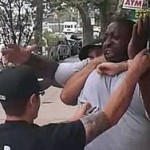
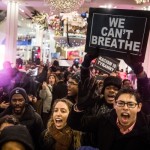
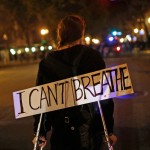


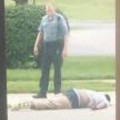
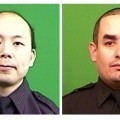
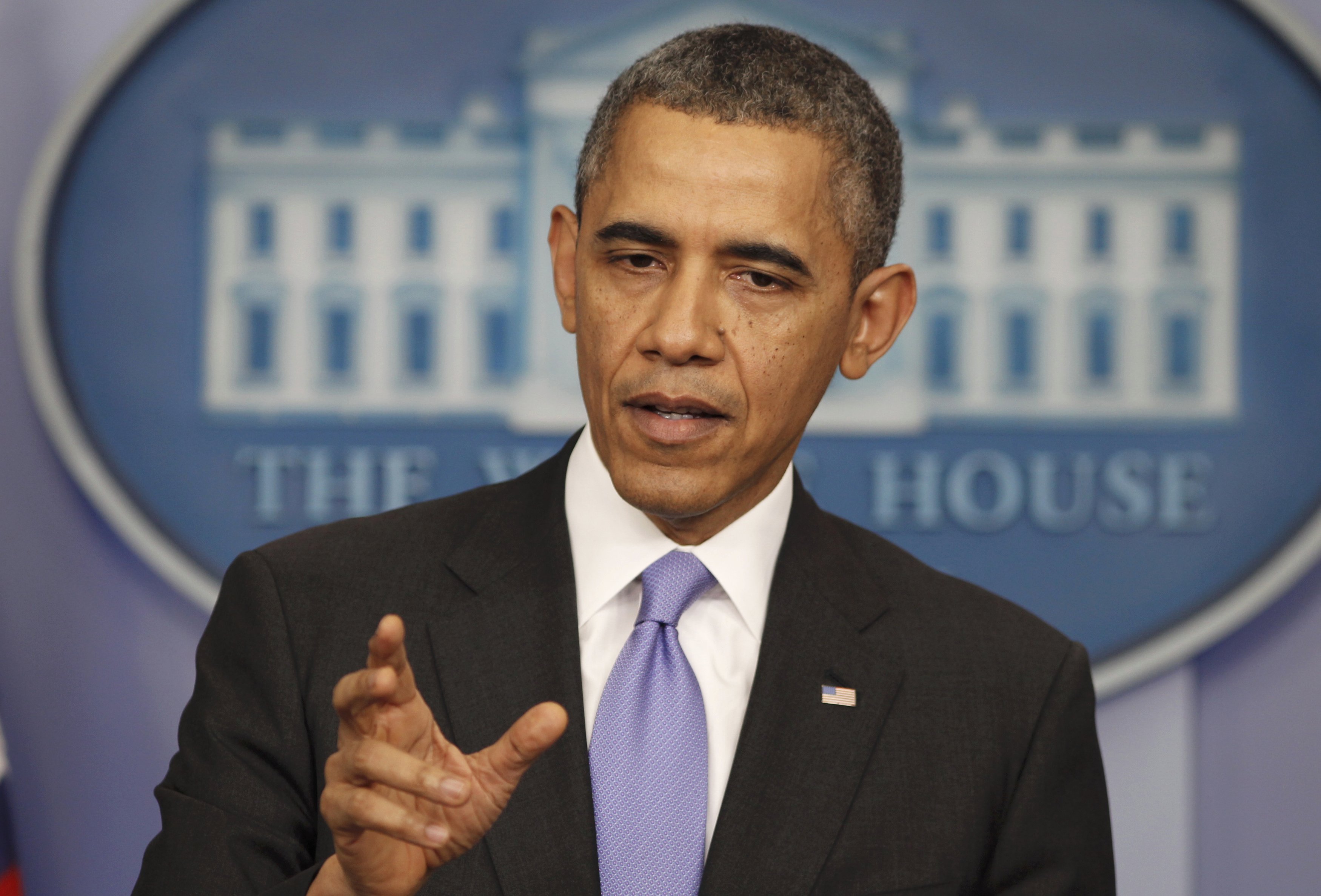
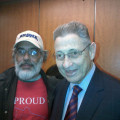











Follow Us